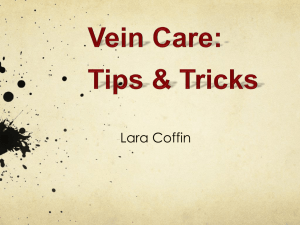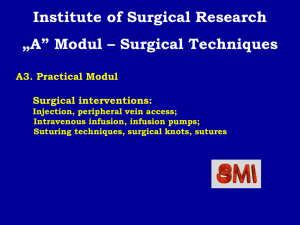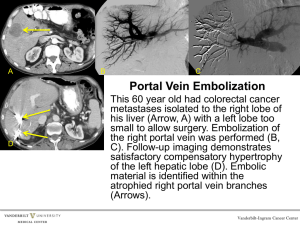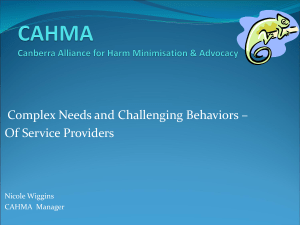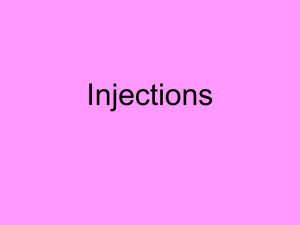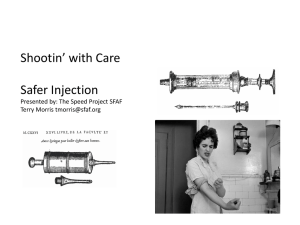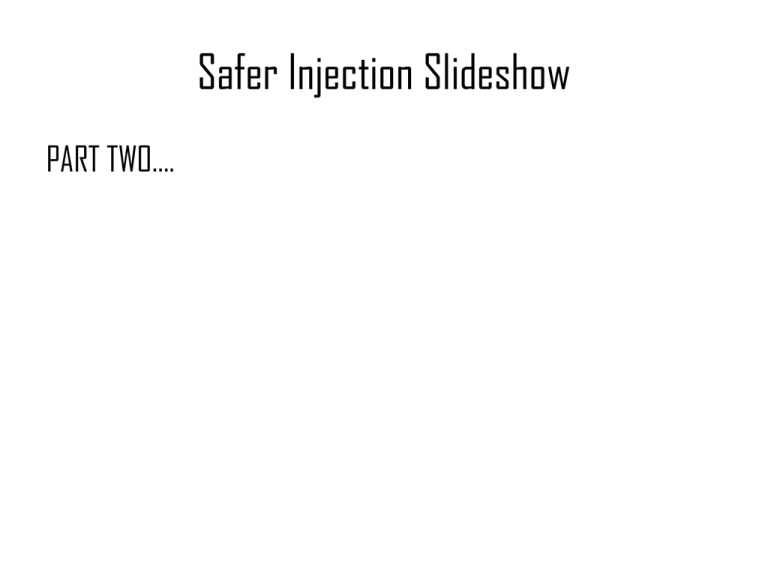
Safer Injection Slideshow
PART TWO….
This slideshow contains images, text, and information that was gathered from websites, books, pamphlets,
and other resources developed by The Harm Reduction Coalition www.harmreduction.org, Chicago Recovery
Alliance www.anypositivechange.org, RTI International www.rti.org/, Seattle King County Department of Public
Health www.kingcounty.gov , and the Harm Reduction Therapy Center www.harmreductiontherapy.org .
In most cases the origin/creator of the image or information isn’t sited, so I owe apologies to folks whose hard
work isn’t credited. Please mention these folks if you use the material.
I have used the slides to invite people into conversations about injecting at workshops, small groups, and one
on one. I also email it to people who would like the information but aren’t into groups.
Please make any edits/changes to the slideshow that suits your needs.
If you have any suggestions, corrections, or additions that might help me out, please send them my way.
Take what’s useful and ignore the rest.
Thanks!
Terry Morris
tmorris@sfaf.org
Speed Project Coordinator
San Francisco AIDS Foundation
(415) 487-8043
This slideshow contains images, text, and information that was gathered from
websites, books, pamphlets, and other resources developed by The Harm
Reduction Coalition www.harmreduction.org, Chicago Recovery Alliance
www.anypositivechange.org, RTI International www.rti.org/, Seattle King County
Department of Public Health www.kingcounty.gov , and the Harm Reduction
Therapy Center www.harmreductiontherapy.org
In most cases the origin/creator of the image or information isn’t sited, so I owe
apologies to folks whose hard work isn’t credited. Please mention these folks if
you use the material.
I have used the slides to invite people into conversations about injecting at
workshops, small groups, and one on one. I also email it to people who would like
the information but aren’t into groups.
Please make any edits/changes to the slideshow that suits your needs.
If you have any suggestions, corrections, or additions that might help me out,
please send them my way. Take what’s useful and ignore the rest.
Thanks!
Terry Morris
tmorris@sfaf.org
Speed Project Coordinator
San Francisco AIDS Foundation
(415) 487-8043
Deep vein thrombosis 'DVT'
Injecting into the femoral vein (or the veins of the leg) can cause a blood
clot to form against the lining of the vein.
These clots can be big and not stuck well to the side of the vein. If they
break off they can carry on up through the veins and get stuck in the
lungs, causing pain, breathlessness and, possibly, heart attack and death.
Signs and symptoms of a DVT (deep vein thrombosis) forming include the leg
becoming:
• swollen; hot and red; and
• sore (especially in the calf).
Image shows the way a blood
clot can travel to the lungs
from the femoral area and
cause severe damage including
death in some cases.
Blood Clots II
There is also a possibility that the blood clot will be carried from the leg, through the body and into
he lungs.
This is called Pulmonary Embolus.
If this happens there is a chance that you will die.
IF you have had any symptoms of deep vein thrombosis, or even if you haven’t, and you feel chest
pain or breathlessness, call an ambulance or seek medical assistance.
Deep vein thrombosis and pulmonary embolus can have a very quick effect and needs to be treated
by a qualified medical person
Abscesses in the Groin
Abscesses and ulcers can be quite common for people who inject in the groin
area. This area of the body is warm, can get sweaty and may be relatively
unclean, particularly if clothes are not washed regularly.
Abscesses and ulcers develop when you inject in the same spot too often. They can
appear as an open wound or a closed painful swelling with stretched skin that may
not heal without proper treatment.
Symptoms include swelling, redness, warmth around the swelling, and pain. The
abscess or ulcer may weep with pus or a bad smelling fluid. Abscesses can be lifethreatening if not treated properly, and are quite dangerous in this area of the
body.
• If you notice a swelling or painful red lump around the injecting site, see a doctor.
• This is not an area of your body you want amputated.
Abscesses can be easily treated by having the wound lanced and drained, and antibiotics are sometimes
prescribed to clear remaining infection. Ulcers may need to be cleaned and dressed by a medical person for
periods of months before they heal
New needle! Clean washed hands and cleaned
injection site, clean clothes…
• FINDING THE FEMORAL VEIN
1. After washing your hands and swabbing the
injection site, find the position that is most
comfortable for you. Some people prefer to sit
and
some prefer to stand when injecting into the femoral
vein. Find the femoral PULSE
your right groin.
2. Gently put the middle finger of your right hand on
the pulse. (if injecting into your left groin, use
the left hand)
3. Let your index finger rest beside the middle finger.
4. The femoral vein should be somewhere elow
the index finger.
Note: If you are already injecting into the femoral
veins on both legs, you may want to continue to
use the veins in both legs.
However, if you have only used the vein in one leg, it
may be best to stay with the vein you have found
rather than risk hitting the nerve or artery in
the other leg when searching for the vein.
femoral
INJECTING INTO THE FEMORAL VEIN
1. Carefully insert the needle next to the index finger with the needle pointing in the direction of your heart.
2. Push the needle in straight (at about a 90 degree angle to the leg).
3. Pull back the plunger and check that the needle is in the vein. If it is in the vein the syringe will fill with dark red blood.
4. Inject the solution slowly and remove the needle gently to avoid damaging the vein.
5. Use the clean towel or tissue paper to stop the bleeding. Press lightly on the injection site for at least a minute then check
to see if the
bleeding has stopped or reduced. If you are continuing to bleed heavily lie back, raise the leg and continue to press on the
injection site with the
clean towel, and prepare for further action in case of continuing blood loss.
6. Keep the area clean after injecting.
This information may help you inject safer if you are injecting in the femoral vein. However, there are significant
risks involved
with femoral injecting and we would advise you to try to use safer alternatives if you can.
Always seek medical help if anything goes wrong.
The NECK- riskiest vein selection site
Lies close to the carotid arterymajor blood vessel to brain
Hitting the carotid could be fatal
Abscesses- deep neck infections
Needles breaking off in vein
Bone infections
Nerve damage to the vocal cords
and hearing
Arterial damage (affecting
oxygen rich blood flowing to the brain)
Hitting the Carotid artery,
which can be fatal.
Abscesses- deep neck infections
Needles breaking off in vein
Bone infections
Nerve damage to the vocal cords
and hearing
Arterial damage (affecting
oxygen rich blood flowing to the brain)
Hitting the Carotid artery,
which can be fatal.
So….just to drive the point home…Injecting in the neck is extremely dangerous, as there are many arteries, veins and nerves
close together.
Hitting the carotid artery can instantly kill you, hitting other arteries can result in strokes.
Hitting nerves is very painful and can cause paralysis.
It is hard to hit the neck!!!! Neck injection requires the use of a mirror.
This difficulty may lead people to ask others to attempt neck injection for them, removing all personal control over the
process. It may also lay the injector open to at least a manslaughter charge if the person dies — even if they requested the
injection.
The common complications of neck injecting may be similar to the usual vein problems, such as cellulitis and abscess
formation, but have even more devastating effects. An abscess or cellulitis (infection due to bacteria) in the neck can cause
dangerous pressure on nerves or obstruct the airway.
What else can go wrong? Accidental injection into an artery means the drug, and any other matter contained in the solution,
will go directly to the brain, potentially causing a range of neurological problems, including strokes, weakening of the blood
vessel wall (aneurysm) and nerve damage, including vocal chord paralysis.
Rotate Your Injection Site
Injecting Tips
Push the shot in SLOWLY…….that way it wont leak out around the needle, burst, or stretch your
vein….
Learn how to inject with both hands.
• If you’re not in a hurry, take the time to find a different vein. Practice when you have time and a
safe place.
• Practice using your other hand to shoot.
• Save your easy spots for when you are in a hurry and know you won’t have time.
• Don't use veins that do not bend when pushed. They may have blood clots that can break
off and lodge in the lungs or other parts of the body and cause serious damage.
• Using the same injection site over and over without letting the vein heal is one of the
surest ways to cause vein collapse.
Injecting Tips
•
Use the highest gauge (thinnest) needle you can find to make the
smallest puncture wound possible.
•
Alternate and rotate your injection sites. Always try to inject at
least one inch from your previous injection site. Give your veins a
chance to rest in between injections. Stay away from veins that are
red or tender until they heal.
•
Always inject in the direction of the body's blood flow (toward
the heart).
•
Use a soft, flexible, easy-to-open tourniquet and remove it after
you've registered but before you inject to help prevent bruising.
•
Use emollient-rich or antibiotic creams on injection sites once
they've closed or scabbed over. Aloe vera gel and vitamin E oil can
help reduce the appearance of track marks.
Finding a vein…feel for it
You may have more veins than you think.
If you can’t see a vein….. feel for one.
A tie makes this easier.
Press gently on your arm with the ends of your fingers.
Veins feel different:
Veins — feel like a bouncy tube or under-cooked pasta
Muscle — flat steak
Tendons — stretched bungee cord
Arteries- have a pulse
Bevel, a fancy word for hole.
Bevel (hole) Pointed up
Improper Needle Insertion
NEEDLE CORRECTLY INSIDE A VEIN
Pull the needle out at the same angle you pulled it in.
Booting/jacking makes the hole in your vein bigger.
Don’t lick the tip of the syringe, there is a lot of bacteria in spit.
Position your needle at a low angle into the vein.
Insert your needle at a 15 to 45 degree angle with
the bevel of the needle facing up.
Go with the flow of blood.
Exchange Supplies
Exchange supplies:
what you pick up at the
exchange might save a life.
No, really!
Exchange Supplies
• What supplies are good to have?
• What do you need to have?
• What is nice to have?
Syringes – What size do you
use?
• If you are injecting into a vein use the highest gauge (thinnest/finest) needle you can find
to make the smallest puncture wound possible.
• How can you tell you have a new syringe?
• What can you do if you are having trouble hitting and your needle is getting dull? (backload into
a new syringe)
• Use a sharp, sterile needle for every injection. Using dull needles will cause trauma to the
veins and surrounding tissue, cause a much larger puncture wound, and increase bleeding at
the site.
• Sharpening a used needle can cause it to develop a burr, which will tear the vein and
surrounding tissue and result in unnecessary trauma to the injection site. If you keep resharpening your point, it becomes less flexible and can break off into your vein. If this happens,
seek medical attention immediately!
Why Should I Use a “Tie?”
Using a tourniquet
makes the veins on
the surface get bigger,
and easier to hit!
•Be careful not to tie the tourniquet too tight...it actually works against you
because it stops the blood from getting in.
•Using a Tie regularly helps keep your veins flexible and in good shape,
thus making less scar tissue. Exercise those veins!
Tourniquets
•
If you use a tourniquet (even if you can
find a vein well without one) you make
your vein fatter and thus easier to hit.
And the less damage done.
•
If you tie the tourniquet in a way you can
release it with a slight tug of your
mouth (so you are less likely to lose
your hit) you can inject into a vein under
less pressure and thus have less
leakage of blood and drug outside of the
vein.
•
Remember: not too tight- that will work
against you because its stops the blood
from getting in! Don’t leave it on too
long
•
Place the tourniquet 2-4 inches above
where you will be injecting.
•
Use a soft, flexible, easy-to-open
tourniquet and remove it after you've
registered but before you inject to
help prevent bruising.
Pump up your veins!
Stay hydrated …Keep your veins big and fat
by drinking lots of water. It is harder to miss when
you have big veins.
If you can, don’t smoke cigarettes for
an hour before injecting-nicotine causes
veins to constrict and hide.
Take a hot shower or use a hot
compress for 10 minutes, the heat will
help your veins expand and rise to the surface
Swing your arm around like a
propeller.
Do some push ups!
Water
• Cleanest water source possible.
• Don’t draw up water from a source someone else has used.
• The more you dilute your shot the less damage you will
cause your veins.
Are all filters created equal?
Why use a filter?
• It filters out particles that you don’t want in your shot. (cut)
• EMBOLI
An embolism is something such as air, fat, impurities, dirt, or other particles that can obstruct
a blood vessel which results in the blockage of blood flow. Emboli can be extremely serious,
particularly if they travel through the blood vessels to the heart or lungs or lodge in the small
capillaries of the fingers, eyes, or toes where severe circulation damage can occur.
• Emboli can be avoided by filtering out any particles in your shot and refraining from
injecting pills, no matter how pulverized they appear to be.
Sharing cottons can spread HIV, hepatitis B and hepatitis C.
• Spores & bacteria grow in used cottons.
• Don't save used cottons for when you can't score.
• Save a tiny bit of dope instead.
• Use a fresh, clean cotton every time you shoot.
Alcohol pads- we love them!
• Use alcohol wipes before every injection!
• Alcohol wipes help to remove dirt and germs from your
skin.
• This makes an "antiseptic field" on your arm.
• Alcohol wipes reduce your chances for "tracks" (scar
tissue), abscesses (pus pockets), and other infections.
• They stimulate the skin surface and make it shine.
• Hard- to- find veins are easier to see and hit, especially if
you use side lighting!
Which cleans the skin better,
alcohol pads or soap and water?
SOAP AND WATER!
• Soap and water are very effective at both killing and loosening and washing away all kinds of
germs which can cause infections
including HIV and hepatitis B and C.
• Washing your hands and potential sites of injection prior to preparing your shot will greatly
reduce the amount of germs around and thus their potential for getting into your body.
• It doesn't appear to matter what kind of soap you use as long a s you make a lather (rubbing
well) and rinse well.
• It even appears than soap and water make for cleaner skin than wiping
with an alcohol pad prior to injection.
• Warmer water and the friction from rubbing may help make it easier to find a vein too!
COOKER!
What are some things people use to prepare their shot?
Why is it important everyone has their own if you are
shooting in a group?
What does that mean for dividing shared drugs?
True or False…
Taking vitamin C
helps veins heal
faster,
reduces bruising,
and bleeding.
TRUE!!!!
One of the main causes of bruising seems to be a deficiency in certain nutrients,
primarily vitamin C, vitamin E, and zinc. Vitamin C helps protect against bruising
by strengthening capillary walls.
A vitamin C deficiency may be caused by several factors:
Eating too few fruits and vegetables
Taking drugs which destroy this vitamin
Long-time stress from illness, frustration or depression
Smoking (one cigarette can deplete the body of 25 mg of vitamin C)
Frequent emotional outbursts such as anger
What are some things you can do to get more vitamin C in your diet?
Why do we give out Vitamin c powder (an acid)
abscesses
What is an abscess?
• An abscess is a pocket of pus. Pus means you have an infection. Pus is made of dead tissue,
germs (bacteria), and white blood cells. The white blood cells rally around to kill the germs.
Sometimes, abscesses will burst and drain, a way the body has of getting rid of the infection.
• Abscesses begin with redness, swelling, and tenderness at an injection site and develop into an
infection with a hard, pus-filled core. Abscesses result from missed hits (injecting into the
tissue surrounding the vein), injecting a solution with a lot of particles in it, failing to clean the
injection site prior to injecting, using dirty injection equipment, or skin-popping drugs like coke
or speed that cause damage to muscle tissue and skin.
• If you notice a hard, warm lump developing at an injection site, apply warm compresses at least
three times a day to either make the abscess that is forming go away or come to a head (soften
and fill with pus). If it comes to a head, you can get the abscess opened and drained at a hospital
or clinic. If you experience fever, chills, extreme fatigue, or pain associated with an
abscess, seek medical attention immediately because you could have a blood infection.
Pain in the groin or armpits also means you most likely have an infection for which you should
seek medical treatment.
Injection misses veins and leaves
contaminants in tissue.
What causes an abscess?
•An abscess can start anywhere in the body where bacteria infects tissue.
•Drug shooters often get abscesses on their arms or legs -- mostly (but not always) at injection sites.
•You are more likely to damage tissue and develop an abscess when you "skin pop," "muscle it," or miss your vein.
•Both the cut and the drug itself can cause infection and damage tissue.
•You can even get an abscess AFTER you stop injecting.
White blood cells attack contaminants but
can't eliminate quickly.
Dead white blood cells crystalize around the
infection, creating abscess.
Repeated injections maintain area of infectious fight.
Since the body cannot break down infection as quickly as it is increased the abscess keeps
growing.
Avoiding abscesses
•
•
•
•
•
•
•
•
•
•
How can I reduce my risk for abscesses?
Before you shoot, WASH your skin and hands with HOT, SOAPY WATER. Hot water and vigorous rubbing make the veins
bigger, too.
Use a BRAND NEW, STERILE RIG every time you inject or divide drugs. If you can't get a new rig, use one that is well-
rinsed, bleached for at least 30 seconds, then rinsed again with fresh, clean water.
Use clean cottons, clean cookers and fresh, clean water every time.
Clean the injection site properly with alcohol wipes.
Don't lick the needle before you inject. You carry a lot of bacteria in your mouth that can cause infections under your
skin.
Choose good veins. Keep your veins big and fat by drinking lots of water. It is harder to miss when you have big veins.
Sometimes a miss will get infected and turn into an abscess.
Use a tourniquet. This increases blood pressure in the veins and makes skinnier veins bigger around, easier to see,
and easier to hit.
Slow down. Relax. Take a deep breath to help keep your hand steady so you don't miss. Shaky hands from a 5- day
speed run or from being dope sick can cause you to miss.
Avoid shooting into your hands and especially avoid feet and legs.
I got an abscess…shit
What signs should I look for?
• A hard, reddish, tender lump. It will usually appear at the injection
site, but it can also pop up in other places. The lump might feel
warmer than the skin around it. It might even feel hot. It usually
hurts. It might look pink and puffy. If it gets bigger, the infection is
getting worse. As the infection speads, you might see red streaks
spreading out and away from the abscess. The infection might make
you feel tired or cause fever or chills. You might have chest pains if
the infection goes to your heart or lungs.
Warnings!!!
• DO NOT shoot into or near an abscess.
• DO NOT squeeze or cut into an abscess -- you could push
germs into your bloodstream. This could "seed" your heart
lining with bacteria that can cause an infection to grow in your
heart. This is called endocarditis, and it's a life-threatening
condition.
• People with weak immune systems are more likely to develop
abscesses. If you have a weak immune system, you need to be
even more careful.
What should I do if I get an abscess?
It depends on how bad it is.
Here are some guidelines.
Treat at HOME with a HOT SOAK if:
•
You don't have any red streaks or hot puffy skin around it.
•
About Hot Soaking...
•
Soaking helps draw out the infection. It helps the abscess come to a head and drain
•
How do I hot soak?
•
Soak the abscess in a tub of plain hot water. This works well if the abscess is on your hand or lower arm.
•
Better yet, soak it in hot water and Epsom Salts.
•
Make sure the water is hot, but not so hot that it burns your skin.
•
Hold a hot, wet wash cloth over the abscess if the abscess is in a spot you can't easily put under water.
•
Soak at least 3 or 4 times a day, 10 to 15 minutes each time.
•
If you have a bad infection, you may need to take antibiotics. If your doctor prescribes antibiotics, be sure to finish them ALL -- even if you feel better before
they're used up. If you don't take the whole course of antibiotics, or if you don't take them correctly, the germs they are supposed to treat can develop
resistance. Resistant bacteria make antibiotics less useful against future infections. If pus is trapped under the skin, a health provider may need to open the
wound to drain the pus. Antibiotics alone may not treat trapped pus.
Go to a CLINIC if:
•
It has not improved after 5 to 7 days.
•
The lump gets bigger or more painful.
•
You see red streaks spreading out from the lump.
•
The lump is hot, puffy, and pink, or if you get a fever.
Go to the EMERGENCY ROOM if:
•
You have chest pains.
•
You have chills or a high fever.
•
The infection looks like it is spreading really fast.
What are some situations/circumstances
that might make using by a different
route (smoking, snorting, booty bumping)
a good option?
What are some situations/circumstances that might make using by a different route
(smoking, snorting, booty bumping) a good option?
•
•
•
•
•
•
•
•
•
Not having a clean rig (to avoid sharing) or clean water etc.
Not being in a place where you can take your time and might be interrupted/ not safe
Any time you can’t get your hit and are getting frustrated
If you are trying to give your veins a rest/take a break from injecting or trying to reduce the amount of
injections you are doing.
If you are trying to moderate your use (depending on how it works for you of course)
If you are concerned about overdosing and aren't with people you trust to respond or are alone.
If you don’t want to turn somebody else on to injecting.
If you have been drinking and might overdose.
If you have been on a long-ish run and are dehydrated (speed constricts blood vessel, raises blood
pressure and dehydrates you) the veins you were working with when you began your run are
smaller/skinnier and less plump- so harder to hit.
Alternatives to injecting: Swallow it!
•
•
This tends to be the safest and slowest method of ingesting drugs. When you swallow it is safer because
the body has a much greater chance to filter out impurities.
the drug comes on slower, the effect tends to last longer.
People rarely take heroin orally, it is converted to morphine in the stomach and its strength is halved in the process. ½
Pills like benzodiazepines have chalk or wax fillers in them. These fillers won't irritate the stomach, but pose serious health risk for veins or nasal
membranes if injected or snorted.
There are often contaminants in speed so your gut has to contend with them. Luckily, our bodies have a built-in safety mechanism for anything we might
swallow - if it's dangerous or sickening, we tend to barf. Swallowing meth can be rough on you if you've got ulcers or other digestive problems.
Time to get off: about 20-30 minutes – slow and gentle.
How it’s done:
Crystal can be done in pill form by putting it into those empty gelatin capsules available at most health food stores. People mix it into water, juice, soda, or
add it to coffee to make ‘trucker coffee.’ Then there’s ‘parachuting’ - the meth is wrapped in a small bit of toilet or tissue paper then swallowed.
Time to get off: about 20-30 minutes – slow and gentle.
Things to watch out for:
All drugs we take by mouth are absorbed through the gut and that takes time. The positive and negative effects of the drugs can be or feel less extreme;
however, the effects tend to last longer.
Strategies to reduce possible harms:
Only you know the source of the drugs you've got and the amount you wanna swallow. So, fill the pill yourself. If you're partying with a new buddy or a
roomful of strangers, maybe think twice about taking a pill someone hands you. Same thing goes for drinking it in juice or water or whatever - mix your
own cocktail!
TIPS FOR DOING THIS WELL?
Alternatives to Injecting: snorting
Snorting, is safer than injection in terms of the danger of transmission of blood-borne viruses.
Time to get off: about 3-5 minutes.
Things to watch out for: The membranes in the nose are delicate and can be seriously damaged from
regular snorting. This can lead to nose bleeds, sinus trouble, and in some cases permanent damage to the
nasal structure.
Strategies to reduce possible harms:
If you want to do heroin up your nose, prepare it like you were gonna inject it, remove the needle and
squirt it up your nose. For speed and cocaine, chop it up really fine. Big chunks don't get absorbed and can
cause tissue damage. Sharing straws or bills can transmit all types of germs from the common cold to
possibly Hepatitis C. Don’t share straws or bills. If the tissue in your nose gets damaged over time your
nasal passages can’t absorb drugs anymore. Try to lengthen the time between hits, flush yer nose with
water. You can use the water ampoules from the exchange- that’s actually what they are designed for.
TIPS FOR DOING THIS WELL?
Alternatives to Injecting: Smoking
Smoking, has negligible risk of bacterial or viral transmission and the risk of overdose is lessened compared to injecting. I t
still retains much of the 'rush' of injecting as the effects of the drug occur very rapidly. It is a far safer way to use heroin.
How it’s done:
HEROIN: All forms of heroin can be smoked, but brown base heroin works best. Smoking is the quickest way to get a drug into your
system You get a rush, like shooting up, but smoking has fewer health risks: It's very difficult to overdose (you have lots of control
over the dose you get), there is less risk of catching or transmitting hepatitis, and little risk of getting other infections.
Most people smoke brown or tar heroin by placing it on aluminum foil, heating the foil until the heroin vaporizes, then inhaling in the
vapors through a straw or tube (aka chasing the dragon).White powder heroin can also be smoked in cigarettes. If you roll your
own you can mix the dope in with the tobacco. Another way is to cook up your dope and then squirt the solution onto your cigarettes.
You can also use a glass hash oil pipe, if you can find one in a head shop. Smoking—especially chasing—requires skill; if you're not
experienced it's the least economical way to take heroin, because a lot goes up in smoke
SPEED: The drug is heated in a glass pipe, bowl or stem until it becomes gaseous ("smoke"). It's then inhaled into the lungs. The
smoke" enters the blood stream via the lungs.
Time to get off: about 7-10 seconds.
Things to watch out for:
Smoke of any kind irritates the lungs. Prolonged irritation can lead to breathing difficulties and coughing. People with asthma, emphysema,
and other lung problems are particularly at risk for these effects. If you're smoking speed, you' re going to end up consuming larger
quantities of the drug much faster than if you are snorting or swallowing. Keep in mind, the time to get off is much quicker and the high is
ore intense than when swallowing or snorting speed. For some people smoking can bring on serious asthma attacks (smoke irritates
breathing passages, and heroin slows down the coughing reflex).
Strategies to reduce possible harms:
Before you hit the pipe, decide how much product you're going to use. And then stick to that amount. Too challenging, you say? Maybe
you can try to decrease the frequency of hitting the pipe after your first hit.
Alternatives to Injecting: Booty bumping
Booty bumping, shafting, or rectal ingestion, relies on the many veins in the anal passage passing the drug into the blood
stream quite rapidly. Some users find that trading off some of the 'rush' for fewer health risks is a good compromise.
How it’s done:
Shafting usually involves about 1.5 ml of fluid mixed with the drug- so pick up a muscling Syringe at the exchange so you have more room in
the barrel for water. There are two ways this works. In the first, think turkey baster! With some acrobatics thrown in for good measure.
ith speed, crystal is dissolved in water and a syringe without the needle is used to “bump” this solution of crystal into your butt hole. The
other way is to push a small shard or finger tip covered with crystal into your butt. Either way, the drug is absorbed by the blood vessels in
the lining of the rectum. With heroin, prepare the shot as if you would inject.
Time to get off: about 3-5 minutes.
Things to watch out for:
If you bottom after booty bumping, you're likely to have something besides your absorbent blood vessels and his big dick up your butt.
You're also gonna have an abrasive powder which can increase chances for internal abrasion and condom breakage. If there's no condom
on that dick, the risk for abrasions both in your rectum and on his dick goes up. This increases the chance for exchange of blood. Damage
to the mucous membranes that line your rectum, like burning or tearing, can put you at higher risk of giving or getting HIV and other STDs.
Strategies to reduce possible harms:
If you booty-bump and bottom make sure he has a condom on. Make sure you use clean water to dissolve the speed. Don’t share booty
bump syringes – you could be sharing shit which could give you hepatitis, parasites or other diseases.
Tips?
Shooting in Groups
Overdose
Drug Overdose
In the United States, each year, more injection drug users (IDUs) die from]
heroin overdose than from any other cause, including AIDS, hepatitis, or
homicide.
In fact, heroin overdose was the single largest cause of accidental death in San
Francisco, California from 1997 to 2000.
Many of these deaths are preventable because heroin overdose can be readily
reversed through the timely injection of naloxone, a legal, unscheduled opiate
antagonist routinely used by emergency medical personnel to quickly and
Safely reverse opiate overdose. Peers witness most overdoses (people are not
alone fixing) but deaths occur because drug users are hesitant to summon
emergency medical services for fear of police involvement, and their attempts
at resuscitation are often unsuccessful.
Overdose Deaths
Unintentional drug overdose is the second
leading cause of accidental death in the
United States, just behind automobile
crashes.
According to the Centers for Disease
Control and Prevention (CDC), between
1999 and 2004, the number of overdose
deaths in the United States rose 77
percent, to almost 20,000.
The CDC attributes the 62.5 percent rise in
drug overdose deaths between 1999 and
2004 to a higher use of prescription
painkillers and increasing numbers of
overdoses of cocaine and prescription
sedatives.
What are some of the main causes of a heroin
overdose?
1) Doing too much at once
2) Doing too much over a short period of time
3) Lowered tolerance (time away from use
lowers a person’s tolerance…people often
OD after time spent in rehab, detox, jail, or
the hospital)
4) Quality (purity) of the drug
5) How you take the drug (snort/shoot/smoke)
6) Believe it or not, WHERE you get high can
affect whether you overdose or not.
Who is at risk of an overdose?
1.
2.
3.
4.
5.
6.
7.
8.
9.
10.
11.
12.
ANYONE WHO GETS HIGH (USES DRUGS)
Anyone who's tolerance has gone down or who doesn't know their tolerance.
Someone who has just gotten out of drug treatment.
Someone recently released from jail or prison.
Someone who's been sick, especially liver problems.
Anyone who's not caring about themselves (not feeling the self love)
Someone who drinks or takes downers and then shoots boy.
People going through major life transitions.
People who are feeling socially isolated (no support)
People dealing with depression or other mental health issues.
People without stable housing
Low weight/ weight loss
What are the symptoms of a stimulant overdose?
MODERATE
1) Incoherent speech/ can't understand the person
2) Extreme paranoia
3) Pale skin
4) jaw/teeth clenching
5) Aggressiveness, panic, restlessness
6) Minor shakes
7) Excessive sweating
8) Clammy skin
9) Very rapid pulse/rapid breathing
Serious
1) Can't focus
2) Vomiting
3) Foaming at the mouth
4) pressure/tightness in the chest
5) unable to talk
6) Unable to walk
7) Erratic pulse
8) Violent actions
Seek emergency medical attention. What
Severe
1) seizures
2) unconscious
3)choking/gurgling
4) not breathing
5) no pulse
Speed Overdose
A speed overdose is the result of the heart speeding up too fast and causing a heart attack or
stroke. The clearest sign that someone is overdosing is that his or her face turns blue. They may
also look very pale, be very limp, are able to breathe and look at you but not able to talk. Breathing
and pulse (heart rate) may be slow and shallow and may stop altogether. They may complain of
chest pain, pressure, tightness or shortness of breath or suddenly collapse and become
unconscious. They may foam at the mouth, vomit, shake or have a seizure
Tips for avoiding overdosing on Speed
• Sample the speed (particularly if you plan on injecting). For example, do half a hit or inject the
hit extra slowly. Do this especially when the drug is from a new source or if you haven't
used for a while and your tolerance is down.
• Mixing speed with opiates (known as speed balling) increases the risk of overdose because the
body is receiving two very different messages: hurry up and slow down.
• Overdoses are very serious but do not have to be fatal. Often, the difference between life and
death depends on who is around and what actions she or he take to care for a person who has
overdosed. If you see someone exhibiting the symptoms above, call 911
What are the symptoms of a HEROIN OVERDOSE?
Moderate
1) Uncontrollable nodding
2) Inability to focus
3) Excessive drooling
4) Pale skin color
5) Incoherent speck
Serious
1) Awake- unable to talk
2) Body is very limp
3) Erratic or very shallow breathing
4) Excessive vomiting
SEVERE
1) Unconscious
2) Change in skin color
3) Not breathing
4) No pulse/ or shallow irregular pulse
5) Choking or gurgling
6) Lying in vomit
What to do if someone is overdosing on heroin?
What to do in the case of an overdose?
1) stay calm.
2) check responsiveness with PAIN…..a sternum rub or pinch cuticle.
3)
If they are conscious KEEP THEM THAT WAY!!! (walk them, get them talking, pain)
4)
CALL 911 if you can't stay with them or they are unconscious.
IF they are NOT conscious
1) Check breathing and pulse
•
put them in the recovery position or
•
begin rescue breathing
2) Roll person on their back
3) open air way, check for breathing
4) Tilt their head back and give 2 slow breaths
What can people do to avoid overdosing?
1) Avoid mixing drugs with the same effects (downers/alcohol/dope) If you plan to drink and do
heroin too take smaller amounts, do the heroin first, pace your drinking.
2) Know your tolerance/understand your tolerance. Let your drugs work before you do more.
Purchase just the amount you are going to use. Keep track of how much you have used. Take
control of your own preparation and intake (fix yourself). Take the drug in a way that gets you
high slower (snorting, smoking, and eating)
3) Use the same source to cop from/ know your dealer
4) Taste your shot
5) Use with people you know and trust and who know what to do if someone overdoses
6) Be aware of your surroundings, IF you have to use alone ask people to check on you. Don't lock
doors if using alone, help won't be able to get to you. Will you hit your head if you fall out? Be
aware of power dynamics with partners.
7) Make a plan- what will everybody do if somebody goes out?
8) Ask about the dope, is it strong? Is it cut with other downers?
9) How is your health? Use less if you are ill or recovering from illness. If you have lost weight do
a tester shot. Consider that your tolerance and needs may be different than others.
Save a life
Keep Naloxone on hand and learn how to respond to a
heroin overdose
THE DOPE PROJECT
What we teach:
The DOPE Project offers a basic and comprehensive training on overdose for staff,
residents, and clients in SRO hotels, shelters, treatment programs, and other
community settings. The training runs between one and two hours, but can be
modified to meet your needs. We teach:
What causes an overdose
How to recognize an overdose
What to do if you see an overdose, including rescue breathing
What NOT to do if you see an overdose
How to prevent overdose
Muscling
Why do people muscle or skin-pop?
What is muscling?
• Muscling is when you inject into muscle instead of a vein.
Most people muscle in the upper arms or legs.
What is skin-popping?
• Skin-popping is when you inject
between skin and fat layers.
Also called "subcutaneous" or
"sub-Q," it is injecting the drug
just underneath the skin
Why do people muscle or skin-pop?
• Lots of reasons. Some people just don't like to inject right into a
vein. Others have a hard time hitting their veins. For some, trying to
hit a vein gets so frustrating that they just give up and shoot
anywhere they can. Some do it because drugs absorb more slowly
this way. Muscling and skin-popping give you less of a "rush," but the
effects of the drug may last longer. Some folks don't care about the
rush. They're just trying to keep from getting dope sick. Finally,
some people muscle or skin pop to reduce their risk for overdosing.
What are the harms of muscling and skinpopping?
All injectors are at risk for infections related to using needles.
Muscling and skin-popping allow germs to "sit" inside muscle and fat tissue or
under the skin. These are great places for abscesses and other infections to
brew. Infections in these areas can be very serious. They can also spread to
the blood, bones, heart and other places in the body.
Some of the worst infections include wound botulism, tetanus (also called
"lockjaw") and necrotizing fasciitis ("flesh eating disease"). If not treated
quickly, these and other infections can become life-threatening and result in
death.
Is shooting into a vein safer than muscling or
skin-popping?
No. All three have serious risks. All three put you at great risk for blood-borne
infections like HIV and Hepatitis B and C.
Muscling and skin-popping may cause more abscesses and skin infections, shooting
into a vein may be more likely to cause serious long-term illnesses like
endocarditis. This is an infection of the heart valves. It can do permanent
damage to your heart. It can also kill you. Injecting into a vein also increases
your risk of dying from an overdose. This is because the dope gets to your
heart, brain and other organs much quicker than if you muscle or skin-pop.
ENDOCARDITIS
Endocarditis is an infection of the hear t lining that is caused by
bacteria, fungi, and other infection-causing microbes that enter
the bloodstream during injection and build up around the valves
of the heart, weakening them as well as other parts of the heart
muscle. Endocarditis can eventually cause a heart murmur, as well
as fever, chest pains, fainting spells, shortness of breath, and heart
palpitations. It can be treated with antibiotics if detected early,
but can be fatal if it goes untreated.
Muscling 101
Wash your hands and skin!
• Use plenty of hot soapy water! Follow up with alcohol pads!
If you skin-pop:
• Do so in your upper arms or thighs.
• Don't inject more than 1/2 cc in one spot.
• Do not skin-pop speed or cocaine.
If you muscle:
• Relax your muscle before you inject. It will be less painful.
• Pull back on the plunger to make sure you haven't hit a blood vessel. If you hit blood, pull out and
try again in another area. Remember to clean the new area before you try to hit again.
• Hit big fleshy areas such as the outside of your upper arm, the top of your thigh, or your butt.
• Avoid the bony areas below your elbow or knee -- especially around your wrist.
Hep C
Cellulitis
Cellulitis is caused by a type of bacteria entering the skin, usually by way of a
cut, abrasion or break in the skin. This break need not be visible. Group A
Streptococcus and Staphylococcus are the most common of these bacteria,
which are part of the normal flora of the skin but cause no actual infection
while on the skin's outer surface.
Predisposing conditions for cellulitis include insect bite, blistering, animal bite,
tattoos, pruritic skin rash, recent surgery, athlete's foot, dry skin, eczema,
injecting drugs (especially subcutaneous or intramuscular injection or where
an attempted IV injection "misses" or blows the vein), pregnancy, diabetes and
obesity, which can affect circulation, as well as burns and boils, though there is
debate as to whether minor foot lesions contribute.

